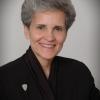GSR Today - Every now and then the mainstream media gives more than just a passing glance at women religious. This is one of those weeks.
“Those who were in the dark are thankful for the sunlight . . .” I chuckled quietly as we sang this line from “Behold the Lamb of God” during Sunday’s liturgy at Our Lady of Guadalupe Monastery in sunny Phoenix, Arizona. Twenty-one sisters under 40 years of age had escaped more wintry parts of the country and traveled here for the annual Giving Voice 20s/30s retreat.
Blessed Mother Teresa is well known for her service to the poorest of the poor, but she also touched the life of Fr. Robert D'Souza, who knew her in India where he learned an important lesson about prayer.
See for Yourself - I'm quite sure there must be a support group for persons who are voluntarily out and about at 6 a.m. on a Saturday. Having a lot to do one weekend, I ventured out early for several errands, crossing off each one on my list as I accomplished them, planning my route in advance for efficiency, and taking traffic short cuts to save time.
One aspect of the mission of Global Sisters Report is providing a place for sisters themselves to speak: about their challenges, success, dreams, hopes and fears. As in Nigeria, most of the sisters I met in Uganda politely declined when I asked them if they’d be interested in writing. Toward the end of my stay, I led another writing workshop to help the sisters put their stories on paper. Here are excerpts from the work of five sisters.
I recently sat with a good friend as she received yet another round of chemo for reoccurring cancer. Our visit was a tender time of connecting and conversing about what really matters. My friend, a longtime spiritual seeker in the Catholic tradition, confessed that she doesn't really know for sure whether there is an afterlife. The notion that her body's molecules will melt into the "great-all" of the universe isn't so very attractive. This idea seems to be an extant theme in contemporary scientific-cosmological explanations about where we've come from and where we are going. From the perspective of pure biology, it seems quite correct.
“A human being is a vessel that God has built for himself and filled with his inspiration so that his works are perfected in it.”
Three Stats and a Map - Last week, the U.N. Food and Agriculture Organization reiterated its call for a “paradigm shift” when it comes to the way the world approaches food production. Speaking at a weeklong agriculture and gardening event in Berlin, the group’s director-general, José Graziano da Silva, said that in order to keep up with the growing population, our current food production system would have to surmount near impossible obstacles.
I was fortunate teaching “African World: Introduction to Contemporary Africa,” in the historically black Howard University in Washington, D.C. (where the student body is largely of African descent), fortunate because I was involved in assisting my students to work out and rework their African identity while examining the place of Africa in the contemporary global world.
GSR Today - The Sisters of Mary Morning Star is an Association of the Faithful, established in June 2014 in Bergara, Spain. There are about 250 members in 10 countries, including 10 women, ranging in age from 24 to 50, who live in the small town of Ghent, Minn. Their community belongs to an ancient cenobitic form of religious practice, which includes solitary and communal life.








